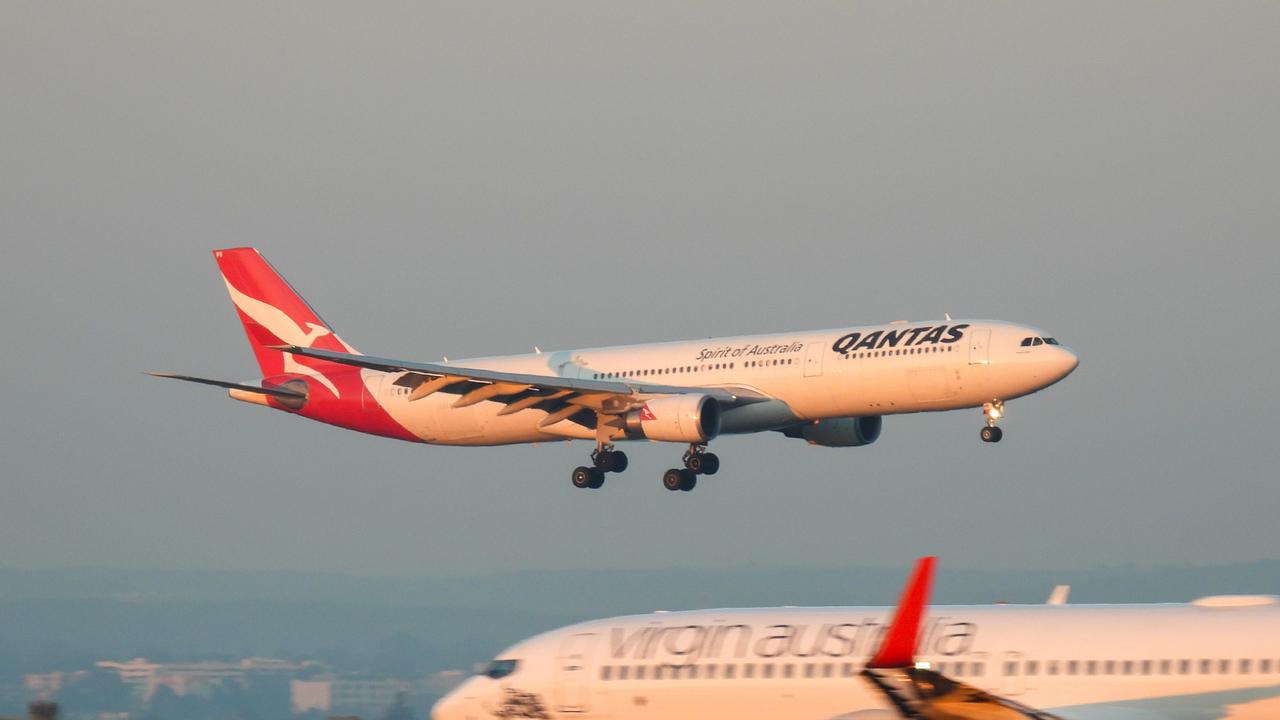
Virgin administrator Vaughan Strawbridge has surprised with his shortlist for the debt-laden airline, but now the game really starts as deals are attempted with the company’s creditors.
Under Strawbridge’s rules, bidders were barred from negotiating with creditors, which is the very process that will determine whether Virgin, its $6.8bn in debt and precious little cash can be revived.
The job is there for Bain and Cyrus Capital to deal with everyone from staff to Boeing to Gate Gourmet to come up with better terms to place a firm offer on the table.
Fancied bidder and local private equity firm BGH lodged a highly conditional offer that may have knocked it out of the running, but then in private equity success or failure isn’t known for several years after a deal, when value is either created or destroyed.
Just whether Bain, which came up with a late flurry of publicity to help it across the line amid concerns its entry was being blocked by the unions, can make the matters work remains to be seen. Newcomer Cyrus was the real surprise and, amid COVID-19, its principals are effectively not allowed to land in the country, but it has recent airline experience with Virgin America, sold a decade after it was started by Richard Branson in 2007.
Cyrus’s principal, Stephen Freidheim, is a junk debt boffin who started his career with Kidder Peabody 33 years ago and was a co-founder of predecessor hedge fund Och-Ziff some 21 years ago.
By the middle of the month the numbers will have to work for either Freidheim or Bain’s Mike Murphy for Deloitte’s Strawbridge to get his sale away after a prolonged preliminary round of bidding.
Only then will the shape of the new Virgin will be known.
RBA stays positive
The RBA did its bit for the economy in March, when it cut its cash rate twice to 25 basis points, set a target for the three-year bond yield of 25 basis points and added to liquidity through a $90bn term funding facility.
So far the banks have used just $5.8bn of those funds, in part because they have plenty of their own money but primarily because there is simply minimal demand for new loans by the targeted small business community.
The RBA raised a positive tone, saying “it is possible that the depth of the downturn will be less than earlier expected. The rate of new infections has declined significantly and some restrictions have been eased earlier than was previously thought likely.”
It’s early days, but Wednesday’s GDP number for the first quarter is tipped by NAB to be negative 0.1 per cent, followed by negative 8 per cent this quarter and then slightly positive in the third quarter.
The calls for negative rates are on present evidence not needed or desired. The reality is it will take until early 2022 for the economy to recover to 2019 levels, so maybe the banks will soon seek funding help from the RBA.
COVID-19 commission chief Nev Power and colleague David Thodey held sway at a Chatham House conference organised by the Australia Israel Chamber of Commerce. This means neither can be quoted but what can be said is their pitch to business is “we are here to help”, but demands should be specific and not money.
The irony is one of the success stories of the COVID-19 lockdown is telehealth, which was opened up because government rules were changed to allow doctors to charge telephone calls to Medicare.
Thanks to the intervention of Jane Halton’s Health Department in 2010, this was blocked for fear the GPs would defraud the system by overbilling for telephone consultations that are now considered a breakthrough.
Thodey in his Telstra days was pushing telehealth, a potential breakthrough and one decade later we have it. Another message is for business to do some lifting when you consider its share of R&D has fallen while government spending is flat.
Digital disruption opens the door to innovation, but business needs to make the changes and, where government is the block as with telehealth, this should be shouted from the rooftops.
NBN demands
NBN’s overzealous demands to ACT TransACT customers to leave the network and join NBN is even more embarrassing given TransACT, the local utility, uses all Huawei equipment in its phone lines. Huawei, the cheapest network, is banned from 5G services in Australia for security reasons.
Back to the future
NAB’s Phil Chronican has reached back to his Westpac days to appoint Rob Coombe as chair of the soon-to-be-separated MLC wealth management arm.
Coombe will join former Westpac BT colleague Geoff Lloyd, who is running MLC after his stint as boss of Perpetual for six years until 2018.
Another BT alumni, Jason Yetton, has recently rejoined Westpac from Commonwealth Bank to run its specialist businesses, which includes its wealth management operations.
It’s a small world in Australian banking, it seems, even as both Westpac and NAB are on the hunt for new executives.
At Westpac, Curt Zuber is filling in for now as a replacement for Lyn Cobley, who resigned last week as head of institutional banking. Zuber is not aiming to stay in the job forever, but is holding the can to help chief Peter King until a replacement can be found for Cobley. Zuber is likely to be replaced when he departs by long-term deputy Jo Dawson.
Westpac’s King is also looking for a new head of retail to replace David Lindberg, who is off to Royal Bank of Scotland, and technology chief Craig Bright, who is off to Barclays.
NAB is also looking for a new business boss to replace Anthony Healy, and a new UBank boss.
Chronican left Westpac not long after Gail Kelly started as boss in 2008 and joined ANZ as head of retail. Coombe, who after running BT was retail boss at Westpac, also left in Kelly’s reign.
Chronican and Coombe are now together again at NAB, with Coombe’s appointment to MLC Wealth the next step towards its separation from the big bank.
Coombe had some time working as boss of the private equity-controlled Craveable Brands, which includes the Red Rooster chicken brand.
Another to return to where he has spent time before is Julian Peck, who will shortly join APA as strategy boss.
Peck is currently the point person for Morgan Stanley advising Deloitte’s Vaughan Strawbridge as administrator of Virgin Australia. He doesn’t start at APA until September, so can stay at Virgin until the sale of the airline is done.
After starting his career with the old investment bank BZW, where he helped on the 2000 APA float, Peck worked as an executive at AGL before joining Morgan Stanley in 2006. He replaces Ross Gersbach, who now heads APA’s strategy team as the company looks for pipeline deals.







